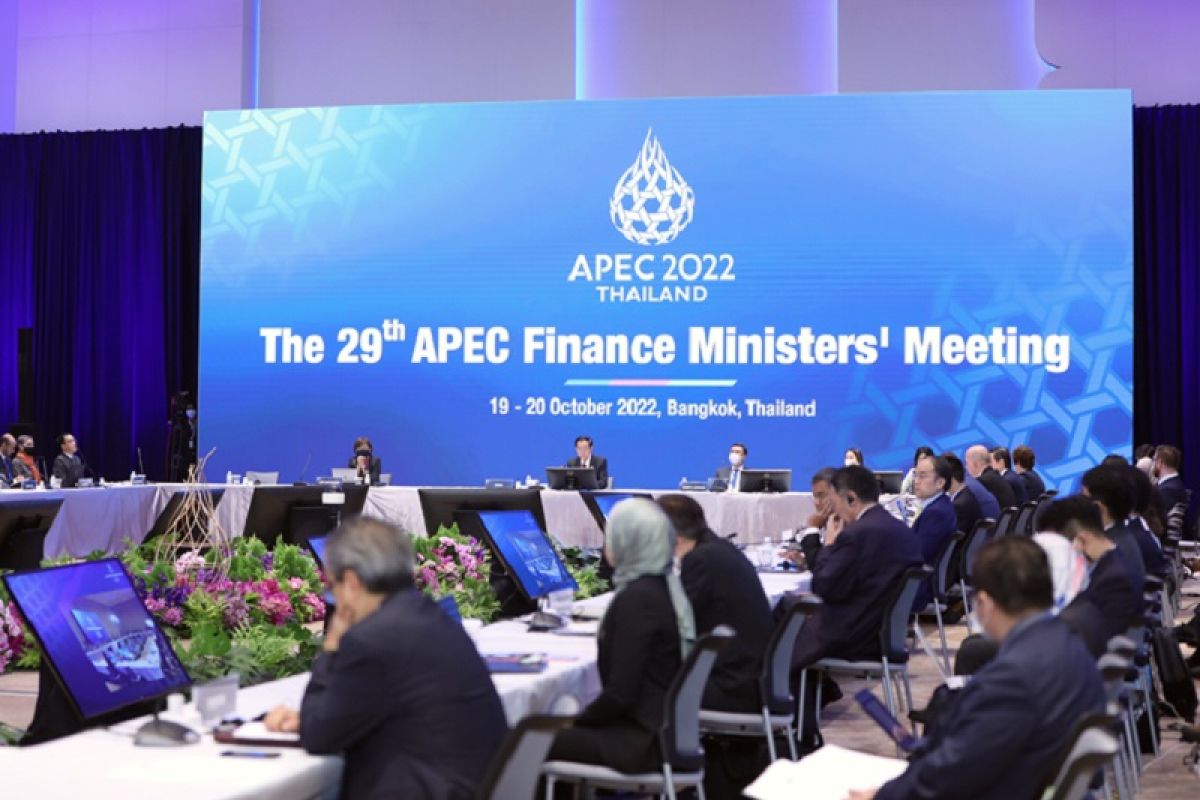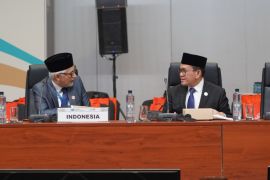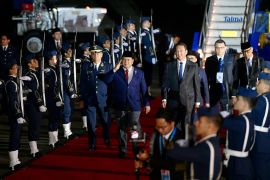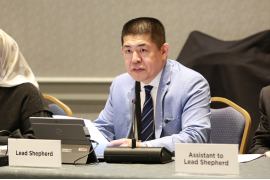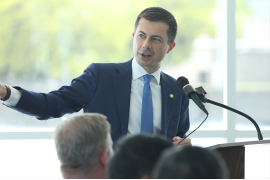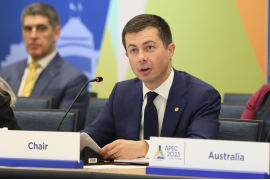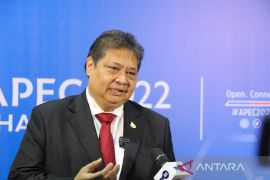Jakarta (ANTARA) - Finance ministers from 21 APEC member economies convened in Bangkok on Thursday to address the risks of inflation and to promote new growth drivers in the Asia-Pacific region.
APEC finance ministers convened against the backdrop of an adverse global environment—where recovery from the pandemic remains fragile and rising inflation is necessitating financial tightening all over the world—and the increasing risk of climate change, as noted in a release issued by the APEC Secretariat and received here on Friday.
Under the theme of "Advancing Digitalization, Achieving Sustainability," Thailand’s Minister of Finance and Chair of the 2022 APEC Finance Ministers’ Meeting Arkhom Termpittayapaisith stressed the importance of striking a balance between growth and taking care of the environment while highlighting that digitalization and sustainability "will be the key to APEC’s prosperity."
"Digitalization has proven to be a key driver of growth, especially in an increasing globalized environment," Minister Arkhom noted in his opening remarks.
"Nevertheless, such growth should not come at the cost of a significantly worsening environment, which is why sustainability remains high on the global agenda, including in APEC," he stated.
While the economic outlook remains uncertain, Minister Arkhom reflected on some of the encouraging tailwinds that can ignite a new growth cycle.
Related news: APEC boosts SMEs' competitiveness through health ethics pacts
"Apart from digitalization and sustainability, resurgence in the travel and tourism sector as well as other economic activities reflects pent-up demand," Minister Arkhom stated.
"We need to deepen our cooperation in developing strategic, measured, and innovative responses in order to keep the world economy steady and propel it forward, especially in the areas which require our collective action, such as climate change, sustainable development, and digital connectivity," he stated.
Meeting at the Queen Sirikit National Convention Center, where APEC Economic Leaders’ Week will be held in November, finance ministers deliberated about inflationary pressure, and, among other things, how to redirect stimulus measures from COVID-19 to long-term growth drivers while maintaining fiscal sustainability.
According to the APEC Secretariat, the ministers explored policy measures and actions to further promote digitalization and sustainability to propel economic growth, including through fiscal policies, taxation regimes, redistribution programs, investment incentives, digital leverage, and the pursuit of sustainable development.
Ministers also heard from the APEC Policy Support Unit and representatives from the International Monetary Fund (IMF), World Bank, and Asian Development Bank on the regional and global economic outlook.
Related news: APEC ministers aim for recovery, resilience of small businesses
The IMF downgraded APEC’s economic growth to 2.5 percent this year, similar to the projection of the APEC Policy Support Unit.
Recognizing the unprecedented risk ahead, finance ministers committed to keeping inflation at bay to mitigate the rising cost of living and poverty. They also committed to keeping trade open while protecting people from the resurgence of COVID-19 or any future pandemics.
Ministers also expressed their respective views regarding the heightened macroeconomic challenges and their effects on the volatility of energy and food prices, the APEC Secretariat said.
"The current political difficulties might have led to conflicting views among member economies," Minister Arkhom pointed out.
"However, we need to demonstrate the spirit of international cooperation that has been central to the successes of APEC over the years, engage with each other productively and constructively, as this will lead to shared prosperity that can be cherished by all," he concluded.
Related news: APEC on track to meet aspirational energy goals
Related news: Technology adoption, integration lever to move up value chain: Report


